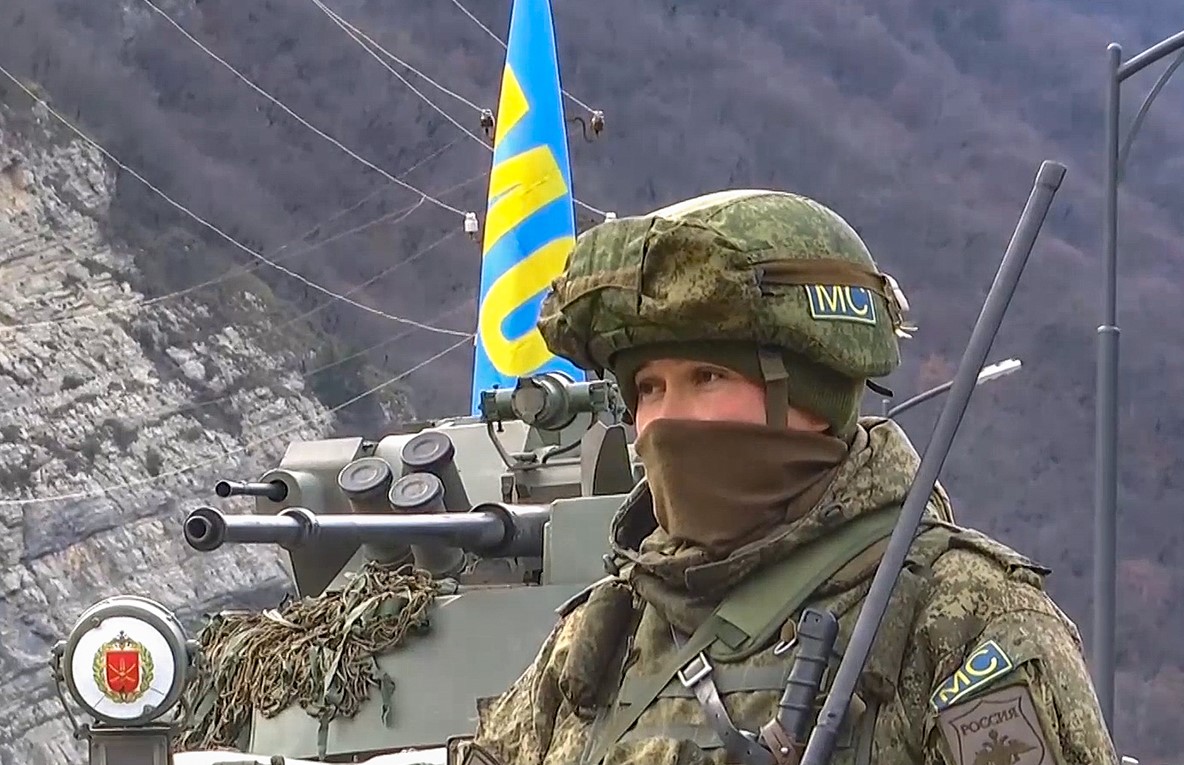
Russia Monitor is a review of the most important events related to Russian internal and external security, as well as its foreign policies.
Date: 8 December 2020
Turkey, Russia Sign Deal for Karabakh Peacekeeping Center
The Russian and Turkish defense ministries sealed a deal to monitor a truce over the Nagorno-Karabakh region from a joint peacekeeping center. It was about setting technical details for dispatching and operating the facility. However, Moscow and Ankara did not settle the project entirely, a move that shows these two still have distinct opinions on the issue.

There will be an equal number of personnel in the center from the Russian and Turkish sides, according to the defense ministry’s spokesman General Igor Konashenkov. The facility will be situated in the territory of Azerbaijan. Russia and Turkey signed a memorandum of understanding for the creation of a joint center back in mid-November. Ankara then informed that it would be built in a location selected by Azerbaijan. But as it turns out, this is a major bone of contention. Russia does not want such a facility – and thus the Turkish military – to be deployed to the territories Azerbaijan captured after the latest war. The war ended with a tripartite deal signed by the Russian and Azerbaijani president as well as the Armenian prime minister. There was not even the slightest mention of Turkey in its provisions. Ankara’s absence seemed all the more striking as it occupied a vital role in the military victory of Azerbaijan and threw its official support to Baku. This was even Vladimir Putin who said that Turkey could serve a key role in potentially resolving the Nagorno-Karabakh issue. Besides, just two days before announcing the truce, there was a media leak on the details of the deal mentioning Turkey’s participation. Roughly everything was true except for Ankara’s involvement in the peacekeeping forces. Nonetheless, briefly after stopping the fire in the enclave, Ilham Aliyev and the Russian news agency Interfax mentioned Turkey’s efforts to bring peace to the region. Right after announcing the truce, a delegation of top Turkish officials involving the country’s defense and foreign ministers, the head of the National Intelligence Organization (MIT), and Land Forces Commander arrived in Azerbaijan for a meeting with Aliyev. Sometime after, Kremlin spokesman Dmitry Peskov added that the Turkish-Russian facility would be located in Azerbaijan – and not Nagorno-Karabakh – as a ceasefire monitoring center, without Turkey being involved in the military “peacekeeping” mission. On November 11, Turkish President Recep Tayyip Erdogan added even more fuss to the whole matter saying “Turkey will join the peacekeeping forces in the [Karabakh] region to monitor the implementation of the deal with Russia.” According to the Turkish leader, “the joint center, which will be established on Azerbaijani territories that were liberated from Armenia’s occupation.” However, Moscow does not agree to deploy it to the areas Baku reclaimed during the latest war. The Turkish side claims that although the agreement has already been signed, its details still need to be determined. Regardless of how the deal would ultimately look like and despite Turkey’s not being included in the formation of the peace contingent, it has shown its important role in the Russian-dominated area. Turkish influence is likely to grow not only in Azerbaijan and Georgia but also in the whole Black Sea region. Now, despite their cordial relations, Moscow will have to compete with Turkey in areas the Kremlin saw as its traditional sphere of influence.
Support Us
If content prepared by Warsaw Institute team is useful for you, please support our actions. Donations from private persons are necessary for the continuation of our mission.
_________________________________
All texts published by the Warsaw Institute Foundation may be disseminated on the condition that their origin is credited. Images may not be used without permission.

















